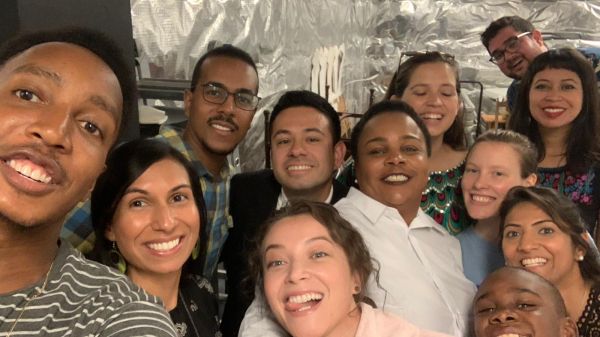Data Literacy at Eco.Logic

We’re chatting with STEM practitioners around the country to understand how they are engaging with data literacy in their spaces. For this interview, I’m sitting down with Rozina Kanchwala, Founder and Executive Director at Eco.Logic, an education, arts, and community building non-profit that inspires people to take tangible action to address climate change.
We chat about why data literacy is important in climate change programming and how humanizing climate data is a key element of Eco.Logic’s work.
Says Rozina, “Climate change isn’t about ‘the planet’ or ‘Saving the Earth.’ Instead, people need to understand how climate change affects people.”
---
Sarah: How do you engage with data and data literacy in your work?
Rozina: It’s important for us to assess three things through our programs that we assess through data: (1) how much have people learned, (2) have they taken action as a result of our programs, and (3) whether they have felt a sense of community through our programming. We survey participants to gather data and collate this information to help us see where we are succeeding and where we need to place attention to improve certain aspects of our programs. Additionally, so much of what we seek to convey to people is climate data. We find graphs that are digestible for people who are not deeply familiar with environmental issues to demonstrate how our climate is changing and why it matters.
Sarah: Are there any programs or initiatives at Eco.Logic that you’d like to highlight pertaining to data or data literacy?
Rozina: We are launching a new program this year called Climate Change Crews. This program is designed to help people take climate action through the support of a community. Groups will meet weekly in the month of April and engage in environmental discussions led by a facilitator who will invite them to take specific climate actions ranging from individual behaviors all the way to engaging with elected officials to drive climate policy. This program will utilize climate data to drive discussions and we will also collect data on participants’ actions to demonstrate how their individual actions are actually part of a larger movement.
One thing we try to do at Eco.Logic is humanize climate data. By putting a human face to climate change, we believe we can reach more people by helping them see the harms that are being felt by certain people. While we do use data, we also use stories (see our play/podcast series here).
Sarah: What does it mean to humanize climate data? Why is it necessary?
Rozina: Every so often, we are hit with news of climate change, often when the Intergovernmental Panel on Climate Change (IPCC) releases a new climate report. We are given graphs, data, and numbers to indicate that the planet is warming, sea ice is melting, and the amount of greenhouse gases are rising. After the news cycle passes, people who have to live with and deal with the impacts of climate change continue to be burdened even after the media spotlight on climate change has moved on. It’s important that we see people behind the numbers and data that point to the climate crisis we are facing because once we understand who the faces of climate change are, we will see the issue for the crisis that it is.
Sarah: How do you humanize climate data in your programs?
Rozina: One of my favorite examples was through our theatrical play performance called “Love in the Time of Climate Change.” In that play, we had a character who was a climate refugee. She told her story of migration from El Salvador which was rooted in climate change. We know that climate-induced migration is happening and we see figures and stats that tell us we can see around 1 billion new climate refugees by 2050. But behind those numbers, it’s important to see who these people really are.
Sarah: As you launch Climate Change Crews, how do you hope to address data literacy?
Rozina: We will use climate data in our conversations to demonstrate the gravity of climate change. We will also invite participants to take climate action in their lives and use the data we collect from them to demonstrate the collective impact people can have. We are partnering with the Environmental Voter Project on Climate Change Crews and one of our activities will be a phone banking session. EVP’s model and strategy utilize data to inform their work as they convert non-voting environmentalists into voting environmentalists. We will discuss how they use data to have an impact on elections.
Sarah: What do you wish the public had more of, in terms of data literacy?
Rozina: Context - What I mean by this is when we talk about climate change, so much can be very abstract. So, when we talk about the amount of CO2 in the atmosphere, it might not mean very much to people who hear that we are above 400 parts per million. People need to understand how significant it is that we went from 280 parts per million at the beginning of the Industrial Age to 412 ppm. And this matters because even if the world stopped emitting carbon dioxide tomorrow (which is not happening), what has already been put in the atmosphere will linger for many decades to come.
Sarah: What do you think most people get wrong about climate change? How could data literacy help?
Rozina: Climate change isn’t about “the planet” or “Saving the Earth.” Instead, people need to understand how climate change affects people. Data literacy can help by contextualizing how many people will be affected through indicators like food security, water availability, forced migration because of weather disasters, etc.
Sarah: Do you have any “asks” for the reader?
Rozina: We invite people to join a Climate Change Crew this April.
---
A big thanks to Rozina Kanchwala and Eco.Logic for participating in this series!
